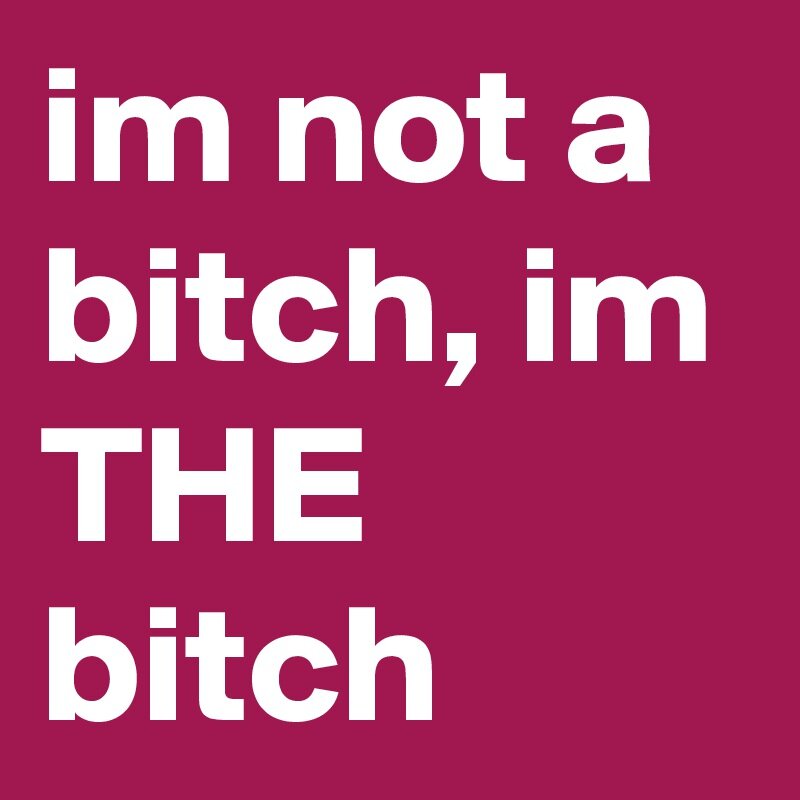So . . . Why DO Men Love Bitches?
We have already seen a resurgence of the Y2K fashion and aesthetics in the past year, does this new TikTok attention mean that we’re ready for 2000’s dating sensibilities to come back as well?
My plan of embodying a Bitch was short-lived and washed away by first glimpses of romance. “I hope I don’t screw this up,” I catch myself thinking before sending a text to the latest man I’m dating. Sherry Argov, writer of “Why Men Love Bitches” would probably roll her eyes.
In the 2002 self-help book, Argov promises to “deliver a unique perspective as to why men are attracted to a strong woman who stands up for herself.” This “strong woman” is the Bitch referred to in the title.
2002 pop culture was lip gloss, crop tops, and low-rise jeans brilliantly paired with Xtina’s ‘Dirrty’ and Paris Hilton’s iconic dress for her 21’s birthday. It was the year the fifth season of “Sex and the City” premiered, JLo grazed the cover of Cosmopolitan with the headline “will he cheat?” next to her.
The 2000s were vastly different in culture and attitude to the hookup scene and the choice overload that we experience now. Plus, what the 2000s had in butterfly clips and crops tops, they didn’t have in dating apps.
Disclaimer: It must be said that the advice in the book is somewhat outdated considering it was published in 2002.
Still, 19 years after publication, the book has reemerged as the dating bible thanks to Gen Z. Through tongue-in-cheek lightness and selective reading, our generation is rediscovering Argov’s “attraction principles” on TikTok.
We have already seen a resurgence of the Y2K fashion and aesthetics in the past year, does this new TikTok attention mean that we’re ready for the 2000s dating sensibilities to come back as well?
“Even though this was a book about dating, it was really a book about learning to love yourself,” says Ilinca Sipos in her “Why Men Love Bitches” book club recap, the last in her ‘Why Men Love Bitches’ series.
Sipos isn’t wrong. Argov does repeatably come back to principles of self-confidence and attitude. The writer talks about self-worth and playing by your own rules. But where I think Sipos and other TikTok creators are slightly too optimistic about Argov’s writing, is in the lack of acknowledgment of the context for this confidence and self-love. The author preached self-worth and being a Bitch as a means to an end, not an end in itself. The end: to attract a man.
In the very introduction – the only part worth reading, in my opinion – Argov explains that the Bitch from the title isn’t a Bitch per se; her use of Bitch is not the insult it could be.
“The Bitch is an empowered woman who derives tremendous strength from the ability to be an independent thinker, particularly in a world that still teaches women how to be self-abnegating. This woman doesn’t live someone else’s standards, only her own,” Argov writes in the introduction.
This idea of living by your own standards is then repeatedly undermined in later chapters when she refers to interviewing men and the wise attraction insights they shared with her. The book preaches independence but only when your standards are attractive to men.
Shelly never argues for women being seen as humans with personalities and feelings. Instead, she compares us to trophies and prizes and puzzles. “You are the ‘prize,’ and you don’t have a long list of calamities to report,” she says. Besides the obvious problems with this objectification, this also raises questions and future problems: what happens after you’ve been won? What happens after the puzzle is solved?
This book isn’t all bad, but the book is less focused on the Bitch from its title and more on the men that supposedly love her. Instead of relating the Bitch to men, the tips in the book would be more effective if they were instead about how to cultivate the Bitch unrelated to men. How can you be a Bitch for yourself instead of being a Bitch for a man?
The book is filled with nuggets of self-love and confidence, but these lose their impact because of the context the author places them in. Feeling confident, valuing your time, and standing your ground are all approached through the lens of dating and attracting a perfect man.
An example is the list that follows attraction principle 47. The last point on the list “above all, make every concerted effort to stay focused on your life,” Argov writes. The power of this point is weakened by her addition of “That’s how you stay sassy in his eyes.”
The idea of the Bitch is appealing but only when internalized and fully lived. In Argov’s text, the Bitch exists as a response to men, to entice men, and to attract – maybe this just comes with the territory of relationship books or maybe it’s casual Y2K sexism. Either way, by centering men, the book undermines the core attitude of the Bitch, formulated in the earlier mentioned introduction.
That being said, in the potluck of sexism and outdated gender dynamics, the book does offer some valuable nibbles. Shelly writes about self-worth and boundaries. She shares thoughts on priorities and financial independence. “The bitch is not governed by fear of losing a man, because she knows the real price to pay is when she loses herself.”
In many ways, “Why Men Love Bitches” is, as TikToker Sipos said, “a book about learning to love yourself”. It’s unfortunate that the ideas about self-love are clouded by male opinion and input. The book could have easily been an essay or Instagram post, or, as Gen Z has proven over the past months, a series of TikToks.
Reading the book nineteen years after publication, I have one main takeaway: skip the book, head to #whymenlovebetches on TikTok instead.
